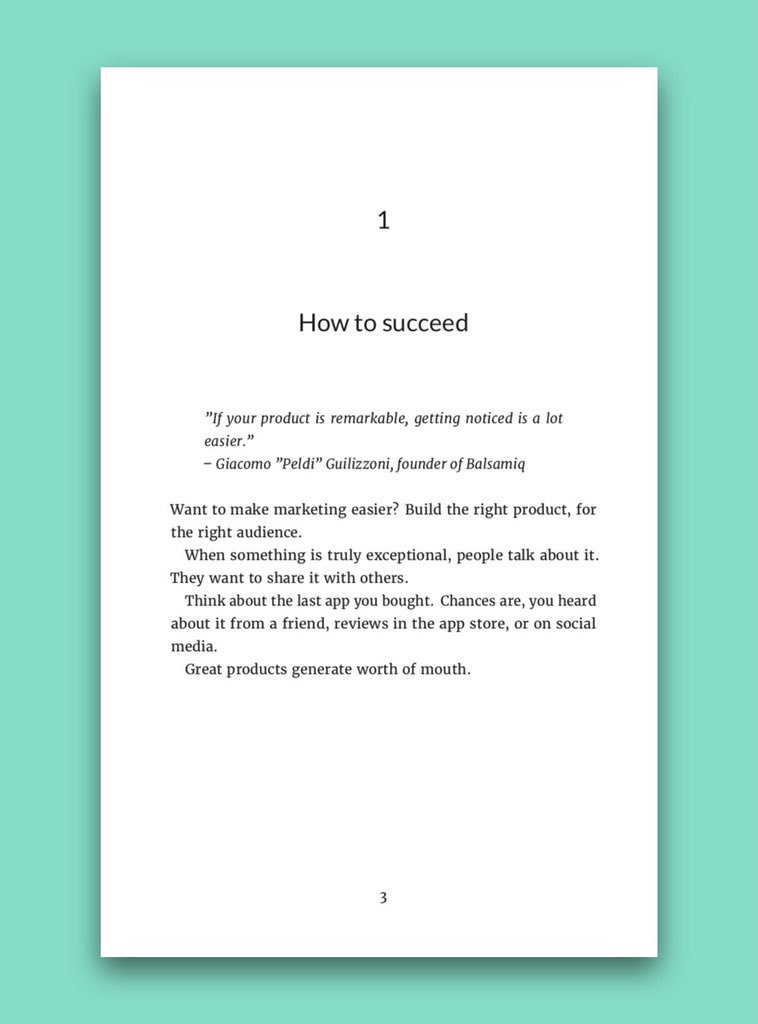1. Choosing the right market
2. Building something they want
"If your product is remarkable, getting noticed is a lot easier." – @peldi



Might be good to do some marketing at some point too :)
— Ruben Gamez (@earthlingworks) February 17, 2019
It's ALWAYS the product. How many AMAZING products didn't get great marketing?
— noah kagan (@noahkagan) February 18, 2019


Donald Barr had a way with words. pic.twitter.com/JdRBwXPhJn
— Rudy Havenstein, listening to Nas all day. (@RudyHavenstein) September 17, 2020
